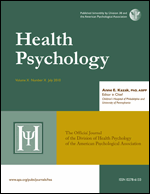Transparency is extremely important to us, so we are letting you know that we may receive a commission on some of links you click on from this page. See our disclaimer.
 That extra plate of ham or turkey is just the thing to make you feel emotionally better this holiday season, right? Or, when you're feeling down at the office, a little comfort food might lift the mood, won't it?
That extra plate of ham or turkey is just the thing to make you feel emotionally better this holiday season, right? Or, when you're feeling down at the office, a little comfort food might lift the mood, won't it?
Not so much, it turns out, according to a new study published in Health Psychology, “The Myth of Comfort Food.”
The study's conclusion is direct: “Although people believe that comfort foods provide them with mood benefits, comfort foods do not provide comfort beyond that of other foods (or no food).”
What might this mean for the workplace? That's what NASA wanted to know.
The New York Times reports that the research “was funded by NASA, in hopes of improving the mood of astronauts on space missions. Astronauts tend to lose weight in space, where the work demands are stressful and the food quality less than stellar. Traci Mann, a psychology professor and the study’s lead researcher, wanted to know whether giving people comfort food would boost their mood, a finding that might help astronauts during a long, taxing voyage to Mars.”
But comfort food doesn't help the mood. The NYT piece continues: “Dr. Mann said the study’s findings helped demystify the belief that comfort food is uniquely comforting. ‘Let’s not say we’re allowed to eat something because it will make us feel better about whatever we’re suffering,' she said. ‘People are looking for a justification to eat something unhealthy. Just eat the ice cream! It’s not magical. But it is yummy.'”
Or, as the study states: “Individuals may be giving comfort food ‘credit' for mood effects that would have occurred even in the absence of the comfort food.”


0 Comments